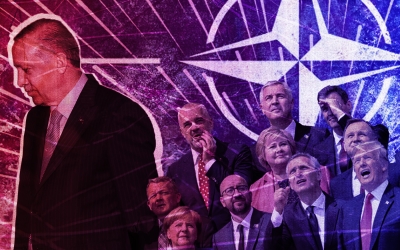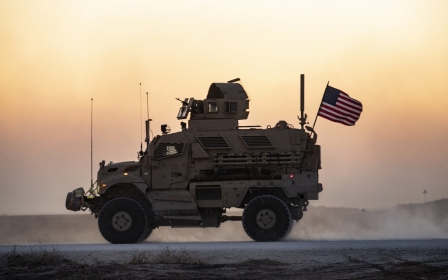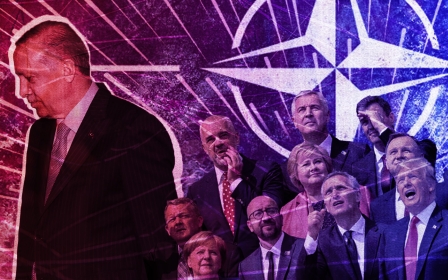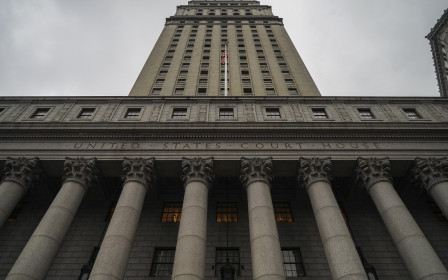Macron says time for Turkey to clarify ambiguous stance on Islamic State
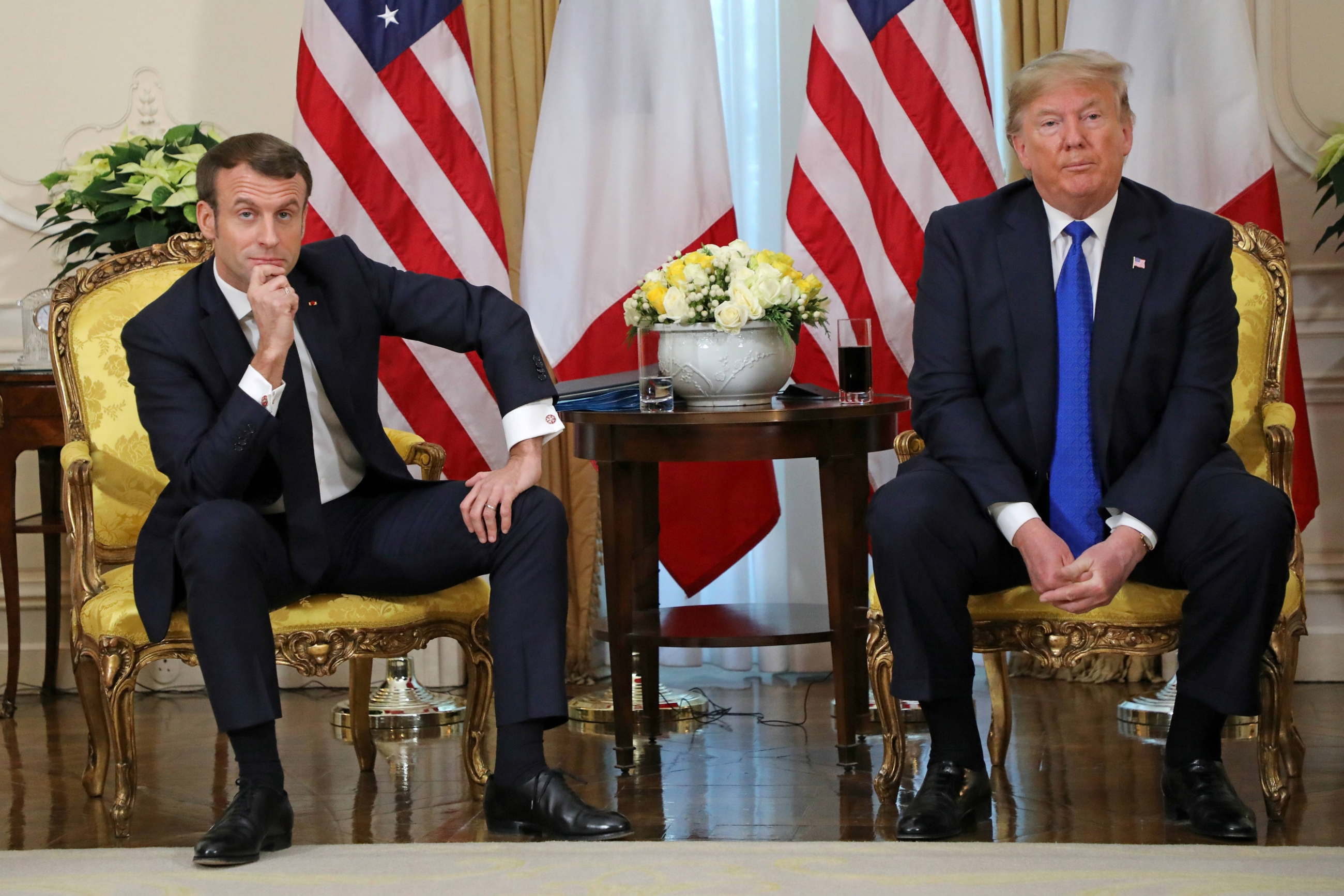
French President Emmanuel Macron accused Turkey on Tuesday of working with Islamic State (IS) proxies and said Ankara's ambiguity towards the group was detrimental to its NATO allies fighting in Syria and Iraq.
Relations between Macron and Turkey's President Recep Tayyip Erdogan have soured ahead of Wednesday's NATO summit in London with the two leaders trading barbs over Ankara's cross-border offensive in northeast Syria targeting Kurdish militias.
Speaking alongside US President Donald Trump in the UK capital, Macron directly linked Turkey to IS fighters, while dismissing Trump's concerns that Paris was not bringing home French IS fighters held by Kurdish groups in Syria.
"The common enemy today is the terrorist groups. I'm sorry to say, we don't have the same definition of terrorism around the table," Macron told reporters.
New MEE newsletter: Jerusalem Dispatch
Sign up to get the latest insights and analysis on Israel-Palestine, alongside Turkey Unpacked and other MEE newsletters
"When I look at Turkey they are fighting against those who fought with us shoulder to shoulder against ISIS and sometimes they work with ISIS proxies."
Ankara denies allegations of assisting IS or its proxies.
Turkey has threatened to block a plan to defend Baltic states and Poland against Russian attacks unless the alliance backs Ankara in recognising the Kurdish YPG militia as a terrorist group.
The YPG's fighters have long been US and French allies on the ground against IS in Syria.
Turkey considers them an enemy because of links to Kurdish rebels in southeastern Turkey.
"I think any ambiguity with Turkey vis-a-vis these groups is detrimental to everybody for the situation on the ground," Macron said.
"The number one [priority] is not to be ambiguous with these groups, which is why we started to discuss our relations with Turkey."
Macron irritated by Trump
In an at times awkward news conference with Trump, Macron appeared exasperated when the US president said he would pass the question to Macron on whether France should do more to bring French IS fighters home.
Paris has about 400 nationals, including around 60 fighters, held in northern Syria, the Reuters news agency reported.
It has refused to bring adults home saying they must face trial where their crimes were committed.
"Would you like some nice ISIS fighters? You can take everyone you want," Trump said in a light-hearted tone.
Visibly irritated, Macron responded, saying "let's be serious" and argued that the number of foreign fighters from European countries was small, and that it would be unhelpful to focus on them rather than on the broader problem.
"It is true you have fighters coming from Europe but this is a tiny minority and I think the number one priority, because it's not finished, is to get rid of ISIS and terrorist groups," he said.
"This is our number one priority and it's not yet done," he said.
Trump suggested Macron had not answered the question.
"This is why he is a great politician because that was one of the greatest non-answers I have ever heard, and that's OK," Trump said.
Earlier on Tuesday, Trump demanded that Europe pay more for its collective defence and make concessions to US interests on trade.
Macron stood by comments he made last month describing NATO as suffering from a lack of strategic purpose akin to "brain death".
Trump said Macron's criticism of NATO was "very, very nasty" and questioned whether the US military should defend any countries that were "delinquent" on alliance targets for national defence spending.
Middle East Eye delivers independent and unrivalled coverage and analysis of the Middle East, North Africa and beyond. To learn more about republishing this content and the associated fees, please fill out this form. More about MEE can be found here.


